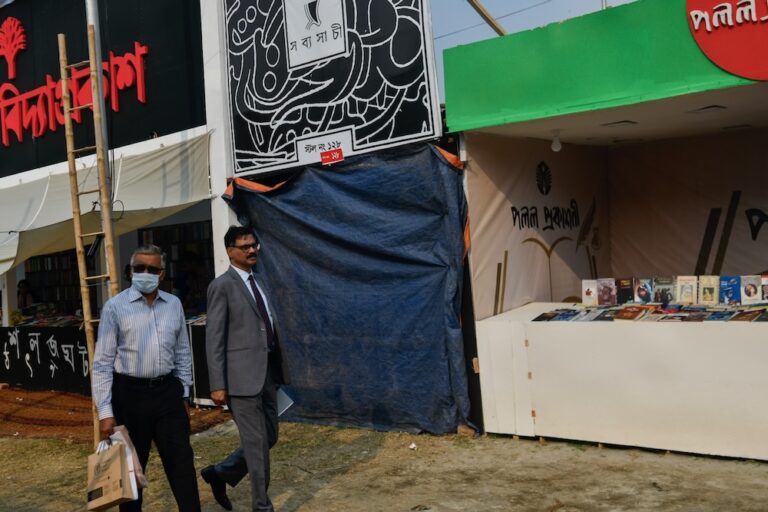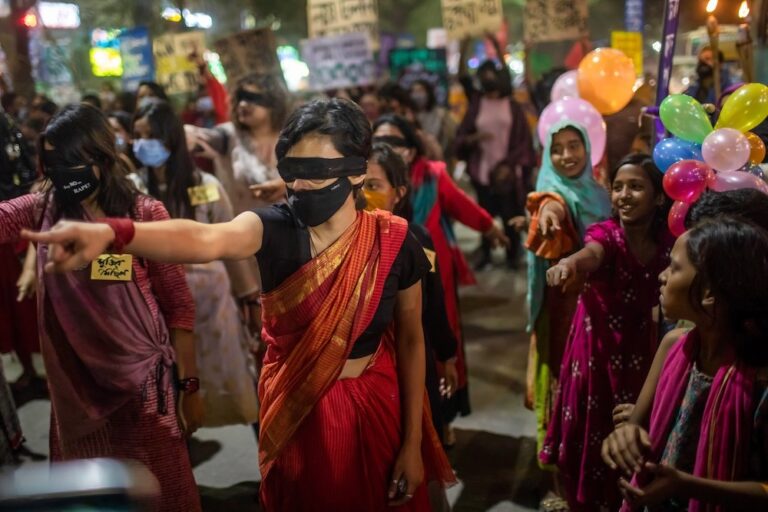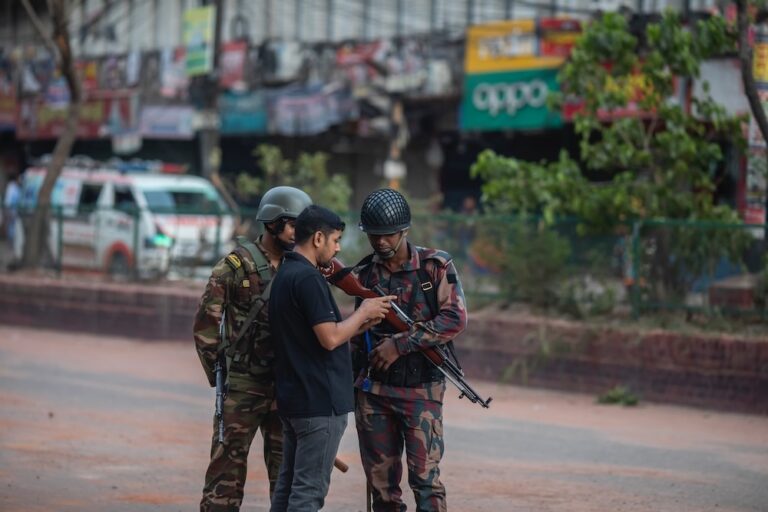On the occasion of World Environment Day, ARTICLE 19 and its partners in Bangladesh call on the Bangladesh government to take urgent action to improve strategies for public awareness and consultation around climate change.
(ARTICLE 19/IFEX) – 5 June 2009
Urging Government to Promote Greater Public Awareness of Climate Change for Vulnerable Communities
On the occasion of World Environment Day, ARTICLE 19 and its partners in Bangladesh call on the Bangladesh government to take urgent action to improve strategies for public awareness and consultation around climate change.
A forthcoming publication on disaster risk reduction, climate justice and the right to information, prepared by ARTICLE 19 with the Bangladesh NGOs Network for Radio and Communication (BNNRC), highlights huge gaps in the provision of information on the government’s strategy and policy framework to minimise the impact of climate change.
Bangladesh is a low-lying country which suffers enormous environmental challenges, including floods, droughts and river erosion. It is predicted that rising sea levels, caused by climate change, will have catastrophic effects on the country and up to 25 million people could be displaced by a 30cm rise before 2050.
Bangladesh is set to receive development aid over the next several years, much of which is to be used to raise flood defences and provide farmers with flood-resistant crops. ARTICLE 19 and other civil society organisations believe that ordinary citizens and civil society groups need to have a say in the development of sound disaster management and environmental policies. ARTICLE 19 has been campaigning for better public awareness strategies and a better commitment from government to ensure that the public is educated and informed about these important issues.
The research conducted by ARTICLE 19 and the BNNRC focuses on the existing legal framework on disaster risk reduction, climate justice and the right to information, and analyses the Bangladesh government’s obligations under international environmental frameworks such as the UN Framework Convention on Climate Change (UNFCCC), the Kyoto Protocol and the Hyogo Framework.
Bangladesh has, so far, had limited success in complying with the provisions of the UNFCCC on raising public awareness and putting in place training and information dissemination strategies to inform vulnerable communities about the impact of climate change on their livelihoods. The government’s initiative in setting up a Climate Change Cell provided little opportunity for the involvement and input of civil society organisations, while the National Adaptation Action Plan has all but come to a standstill.
Instead, the government has embarked on a new country strategy on climate change, which reveals that there has been very limited engagement with vulnerable communities in the development of policy. Lead contributor, Shamsuddoha comments: “Only 10 per cent of the proposed multi-donor trust fund to be spent on awareness raising, information dissemination with civil society participation.”
ARTICLE 19 and partners urge the Bangladesh government to:
– Disclose its proposed Climate Change Action and Strategy Paper for Bangladesh for public consultation;
– Ensure greater participation of community-based and civil society organisations in the formulation and implementation of the proposed strategy;
– Mobilise all line ministries, local government structures, community-based organisations to promote messages about climate change, including through use of tools such as information technologies and community radio stations; and
– Ensure continuous disclosure of information relating to climate change in different geographical locations of Bangladesh, in compliance with the Right to Information Act, 2009.


